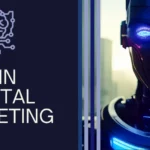
SEO Trends 2025: What You Need to Know to Stay Ahead
Search engine optimization (SEO) is always evolving, and 2025 will be no different. As search engines get smarter, businesses must keep up with the latest SEO trends 2025 to stay visible and competitive. From AI-driven search updates to user-focused content strategies, brands must adapt to continue ranking high on search results.
In this blog, we will explore SEO trends 2025 in detail and provide actionable insights to help you optimize your website for the future.
1. AI and Machine Learning Will Dominate Search Algorithms
Search engines like Google are improving their AI capabilities to understand search intent better. AI-powered updates will continue shaping SEO trends 2025, making it essential for businesses to optimize their content for AI-driven algorithms. Google’s RankBrain and BERT are already using AI to improve search accuracy, and future updates will enhance this even further.
How to Adapt:
- Focus on high-quality, relevant content that directly answers user queries.
- Use natural language and long-tail keywords to align with AI understanding.
- Optimize for voice search, as AI-driven assistants like Siri, Alexa, and Google Assistant influence search behavior.
2. Voice Search Optimization Will Be More Important
Voice search has been growing in popularity, and SEO trends 2025 show that it will play a bigger role than ever. People are using smart speakers and mobile voice assistants to search for information, which means SEO strategies must focus on voice queries.
How to Adapt:
- Use conversational keywords and question-based phrases in content.
- Optimize for local search, as most voice searches are location-based.
- Implement FAQ sections to answer common questions in a natural tone.
3. User Experience (UX) and Core Web Vitals Will Be Key Ranking Factors
Google continues to prioritize user experience, and SEO trends 2025 will emphasize Core Web Vitals even more. Factors like page speed, mobile-friendliness, and interactivity will have a greater impact on rankings.
How to Adapt:
- Improve website loading speed by optimizing images and reducing unnecessary scripts.
- Ensure your website is mobile-responsive and easy to navigate.
- Enhance user engagement by providing a seamless, intuitive experience.
4. E-E-A-T Will Drive Content Strategy
E-E-A-T stands for Experience, Expertise, Authoritativeness, and Trustworthiness. As search engines focus on credibility, websites that demonstrate expertise and trust will rank higher in SEO trends 2025.
How to Adapt:
- Publish well-researched, expert-driven content.
- Include author bios and credentials on blog posts.
- Earn high-quality backlinks from reputable sources.
5. Video Content Will Play a Bigger Role in SEO
With video consumption on the rise, SEO trends 2025 highlight the importance of video content in search rankings. Google prioritizes video results, and platforms like YouTube are becoming more integrated with search.
How to Adapt:
- Optimize video titles, descriptions, and transcripts with relevant keywords.
- Create short-form and long-form videos to engage different audiences.
- Use YouTube SEO by adding timestamps, captions, and compelling thumbnails.
6. Zero-Click Searches Will Continue to Rise
A growing number of searches end without a click on any website. Google’s featured snippets, knowledge panels, and answer boxes are fulfilling user intent directly on the search results page.
How to Adapt:
- Optimize for featured snippets by structuring content with clear headings and bullet points.
- Use schema markup to enhance search visibility.
- Ensure concise, informative answers appear in the first paragraph of your content.
7. Mobile-First Indexing is Non-Negotiable
Google already prioritizes mobile-friendly websites, and SEO trends 2025 will make mobile-first indexing a standard practice. Websites that don’t optimize for mobile will see a decline in rankings.
How to Adapt:
- Ensure your website is fully responsive across all devices.
- Use simple navigation and easy-to-click elements.
- Optimize images and videos for faster mobile loading times.
8. Local SEO Will Matter More Than Ever
As search engines focus on location-based searches, SEO trends 2025 indicate a stronger emphasis on Google My Business (GMB) and local citations.
How to Adapt:
- Optimize your Google Business Profile with updated information.
- Encourage customer reviews to boost credibility.
- Use local keywords in content, meta descriptions, and URLs.
9. Google’s Search Generative Experience (SGE) and Its Impact on SEO
AI-generated search results are changing SEO as we know it, with search engines summarizing content from multiple sources.
How to Adapt:
- Optimize structured content to align with AI-generated summaries.
- Implement schema markup for rich results visibility.
- Focus on concise, fact-based content to increase chances of appearing in AI-generated summaries.
10. SEO for Image Search and Visual AI
With improvements in AI-powered visual search, Google Lens and similar tools will play a bigger role in search.
How to Adapt:
- Use high-quality images with detailed alt text and descriptions.
- Implement structured data markup to help search engines understand images better.
- Optimize images for Google Lens compatibility.
11. Sustainable SEO and Green Hosting
Sustainability is becoming an SEO factor, with Google favoring sites hosted on green hosting providers.
How to Adapt:
- Choose an eco-friendly web hosting provider.
- Minimize server load by optimizing website efficiency.
- Reduce energy consumption by compressing images and using caching.
12. SEO for AI-Powered Search Engines
Search engines like Neeva and Bing are integrating AI to change how results appear.
How to Adapt:
- Use AI-friendly content structures such as bullet points and summaries.
- Implement semantic SEO to align with AI-driven search intent.
- Focus on E-E-A-T principles for credibility.
13. Schema Markup and Structured Data Evolution
As search engines rely more on structured data, proper schema implementation is crucial for enhanced search visibility.
How to Adapt:
- Use FAQ, How-To, and Product schema for better indexing.
- Leverage structured data testing tools to validate implementations.
- Keep markup up-to-date with Google’s latest requirements.
14. Neural Matching and Contextual Search Optimization
Google’s neural matching technology is enhancing search intent accuracy.
How to Adapt:
- Optimize for semantic search rather than keywords.
- Focus on comprehensive content covering related topics.
- Improve internal linking for topic clusters.
15. Hyperlocal SEO for Niche and Small Businesses
As local search grows more advanced, hyperlocal SEO will help small businesses attract their ideal customers.
How to Adapt:
- Target local micro-markets with neighborhood-based keywords.
- Leverage Google Maps SEO and geotagged content.
- Optimize for near me searches and voice assistants.
16. Personalization and Search Intent Will Shape SEO
Search engines are delivering tailored results based on user behavior, search history, and preferences. SEO strategies must shift from simple keyword targeting to understanding and fulfilling search intent to ensure higher engagement and conversions.
How to Adapt:
- Analyze user search behavior to create intent-driven content.
- Use first-party data to improve personalization.
- Implement dynamic content and AI-powered recommendations to enhance user experience.

17. Social Media and SEO Will Work Closer Together
Search engines are increasingly recognizing social media engagement as a factor in brand authority and credibility. Businesses must integrate SEO and social media to enhance visibility and traffic.
How to Adapt:
- Optimize social media profiles with relevant keywords.
- Share SEO-rich content consistently across platforms.
- Encourage user interaction and social shares to build credibility.
18. Augmented Reality (AR) and SEO
AR technology is transforming how users interact with online content. As more businesses implement AR-powered experiences, search engines are prioritizing interactive and immersive content in rankings.
How to Adapt:
- Optimize AR elements with structured data.
- Implement AR previews for products and services.
- Ensure AR experiences are mobile-friendly to align with Google’s indexing.
19. Google Passage Indexing and Its Role in Ranking
Google’s Passage Indexing allows specific sections of content to rank independently, making long-form content more powerful.
How to Adapt:
- Use clear subheadings and structured formatting to make content scannable.
- Optimize for direct answers to increase chances of ranking in snippets.
- Strengthen internal linking to highlight important sections.
20. SEO for Web3 and Decentralized Search Engines
Web3 search engines are shifting SEO toward privacy, decentralization, and blockchain-backed verification.
How to Adapt:
- Optimize for decentralized search engines like Presearch.
- Use blockchain verification to enhance content authenticity.
- Implement privacy-first SEO strategies that align with Web3 principles.
21. First-Party Data and Privacy-First SEO
With the decline of third-party cookies, first-party data is crucial for SEO and audience targeting.
How to Adapt:
- Collect user data through opt-in strategies and CRM systems.
- Use GDPR-compliant tracking and analytics.
- Personalize content using ethical and consent-driven data collection.
22. SEO for Podcasts and Audio Content
Google now indexes audio-based content, making podcasts more discoverable through search.
How to Adapt:
- Transcribe episodes to make them searchable.
- Optimize titles and descriptions with relevant keywords.
- Submit podcasts to major platforms for indexing.
Final Thoughts
SEO is constantly evolving, and SEO trends 2025 will push businesses to focus on AI-driven strategies, user experience, and high-quality content. Staying ahead means adapting early and implementing the right strategies to improve rankings and visibility.
If you want to stay ahead in SEO trends 2025, let Dream Buildr help! Visit https://dreambuildr.com/ for expert SEO services.
Follow us on Facebook for insights and updates!
FAQs
1. How will Google’s Search Generative Experience (SGE) impact SEO?
Google’s Search Generative Experience (SGE) integrates AI-powered summaries into search results, reducing the need for users to click on individual websites. To adapt, businesses must optimize for structured data, provide clear and concise content, and establish credibility to increase chances of appearing in AI-generated snippets.
2. How does Google Passage Indexing benefit long-form content?
Google Passage Indexing allows specific sections of a page to rank independently for relevant search queries. Businesses can benefit by structuring content with clear subheadings, answering questions concisely, and improving internal linking to ensure search engines can identify key passages.
3. What are the best strategies for AI-driven search engines like Neeva and Brave?
AI-driven search engines prioritize user-first indexing, privacy-focused searches, and content quality over traditional ranking factors. To optimize, businesses should:
- Use semantic SEO with natural language processing.
- Ensure content credibility with E-E-A-T principles.
- Avoid excessive ads or tracking, as these engines prioritize privacy.
4. How can businesses optimize for decentralized search engines in Web3?
Decentralized search engines like Presearch use blockchain-backed verification and tokenized ranking models. To optimize for Web3 search engines, businesses should:
- Submit content to decentralized search platforms.
- Implement blockchain-based content authentication.
- Focus on privacy-first, ad-free user experiences.
5. How does first-party data improve SEO in a cookie-less world?
With the decline of third-party cookies, first-party data is essential for personalized search experiences. Businesses should:
- Use email lists and CRM data for audience segmentation.
- Implement GDPR-compliant tracking for ethical data collection.
- Leverage user behavior insights to refine content strategies.
6. What are the key SEO strategies for podcasts and audio content?
Google is now indexing audio content and podcasts, making them discoverable in search results. Businesses should:
- Transcribe podcast episodes to create searchable text content.
- Optimize podcast titles and descriptions with relevant keywords.
- Submit podcasts to Google Podcasts and Apple Podcasts for indexing.
7. Why is optimizing for image search more important in 2025?
With Google Lens and AI-powered visual search becoming more advanced, image SEO is crucial for visibility. Businesses should:
- Add detailed alt text and image descriptions.
- Use structured data markup to improve discoverability.
- Optimize images for Google Lens and mobile-first indexing.
8. How will augmented reality (AR) impact SEO in 2025?
Augmented Reality (AR) is transforming search experiences, especially in e-commerce and local SEO. To optimize for AR:
- Use structured data markup to make AR elements searchable.
- Implement AR-powered previews to enhance engagement.
- Ensure mobile compatibility, as AR features are widely used on smartphones.










